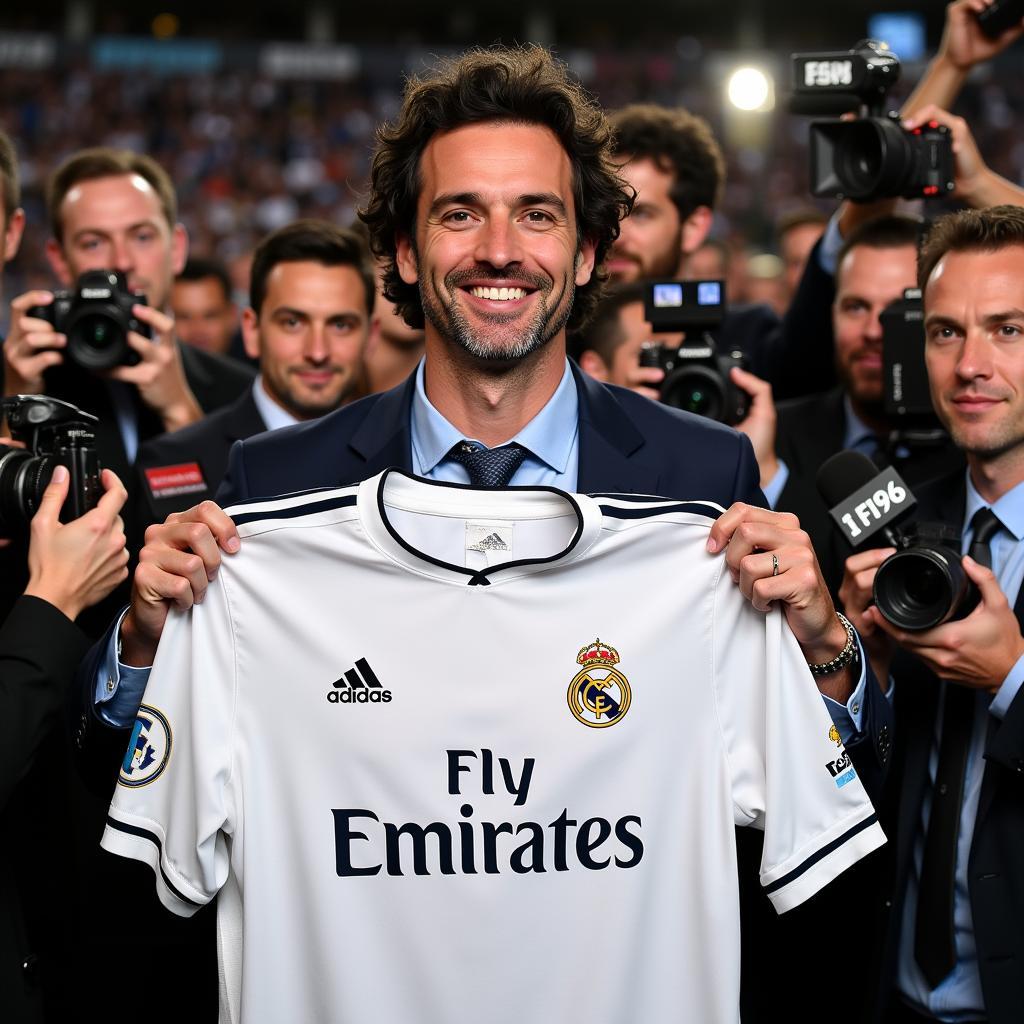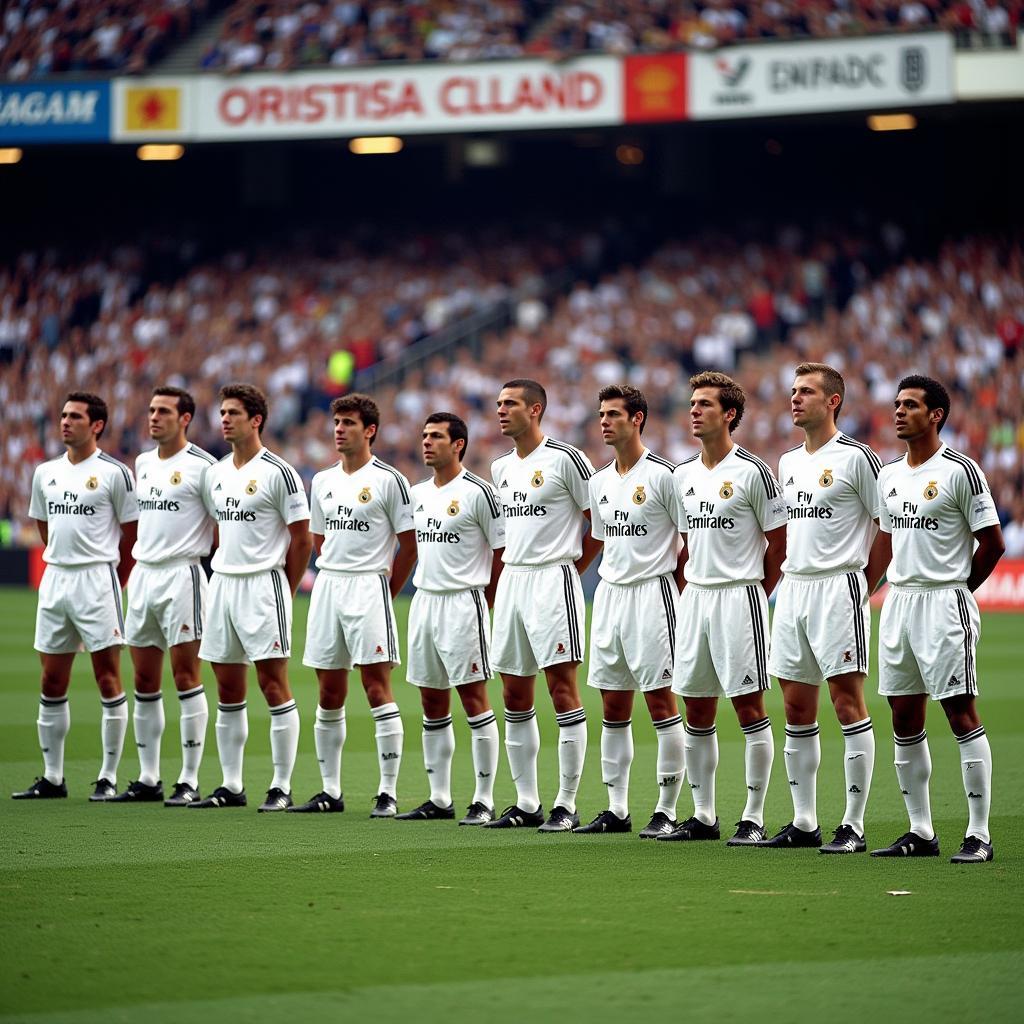The term “Galacticos Fc” sends shivers down the spines of football fans worldwide. While not an official club name, it represents an era of Real Madrid C.F., marked by the assembly of some of the greatest footballing talents ever seen. This period, primarily spanning the early 2000s, saw Real Madrid adopt a policy of acquiring “galácticos” – superstars – to bolster their squad and dominate both domestic and European competitions.
The Birth of a Dynasty
The Galacticos era is synonymous with Florentino Pérez, Real Madrid’s president from 2000 to 2006 and again from 2009 onwards. Pérez envisioned a team that would transcend sport, becoming a global brand synonymous with success and glamour. His vision was to sign one marquee player every summer, creating a constellation of stars that would captivate audiences and attract unparalleled commercial success.
The first “galáctico” to grace the Santiago Bernabéu was Luís Figo, a controversial signing from arch-rivals Barcelona in 2000. Figo’s arrival sent shockwaves through the footballing world, signaling the dawn of a new era in Madrid.
 Luis Figo Joins Real Madrid
Luis Figo Joins Real Madrid
The Golden Generation Arrives
Following Figo, a string of world-class talents made their way to the Spanish capital. Zinedine Zidane, arguably the most elegant midfielder of his generation, joined in 2001, followed by Brazilian phenomenon Ronaldo Nazário in 2002. David Beckham, a global icon both on and off the field, signed in 2003, completing a quartet of superstars that redefined footballing extravagance.
These players, alongside established stars like Raúl González, Fernando Hierro, and Roberto Carlos, formed the core of the first Galacticos era. Their playing style, characterized by flair, attacking prowess, and a never-say-die attitude, made them a joy to watch and a nightmare to play against.
 Real Madrid's Galacticos Line Up
Real Madrid's Galacticos Line Up
Success and Its Price
The Galacticos era was a period of both triumph and turmoil. Real Madrid won two La Liga titles (2001, 2003) and the UEFA Champions League in 2002, with Zidane scoring a stunning volley in the final against Bayer Leverkusen.
However, the team’s over-reliance on individual brilliance and a perceived lack of tactical balance ultimately led to inconsistencies. The departure of coach Vicente del Bosque in 2003, who had successfully managed the team’s egos and playing styles, marked a turning point.
The Legacy of the Galacticos
Despite their relatively short period of dominance, the impact of the Galacticos on Real Madrid and world football is undeniable. They ushered in a new era of commercialization in the sport, with shirt sales and global brand recognition reaching unprecedented levels.
The Galacticos concept was revisited during Pérez’s second stint as president, with the signings of Cristiano Ronaldo, Kaká, Karim Benzema, and Xabi Alonso. This second wave of Galacticos achieved sustained success, securing four Champions League titles in five seasons between 2014 and 2018.
The Galacticos era, while not without its flaws, will forever be remembered as a period of unparalleled star power and excitement in football history. It cemented Real Madrid’s status as a global giant and left an indelible mark on the beautiful game.





